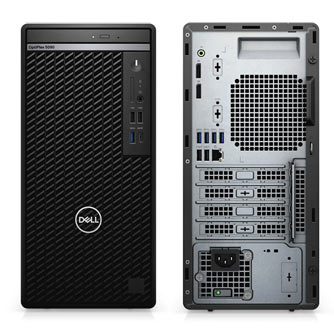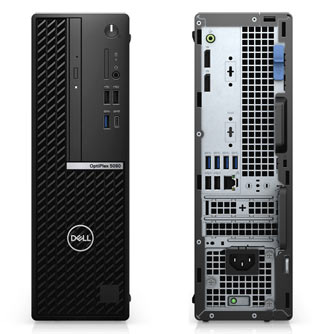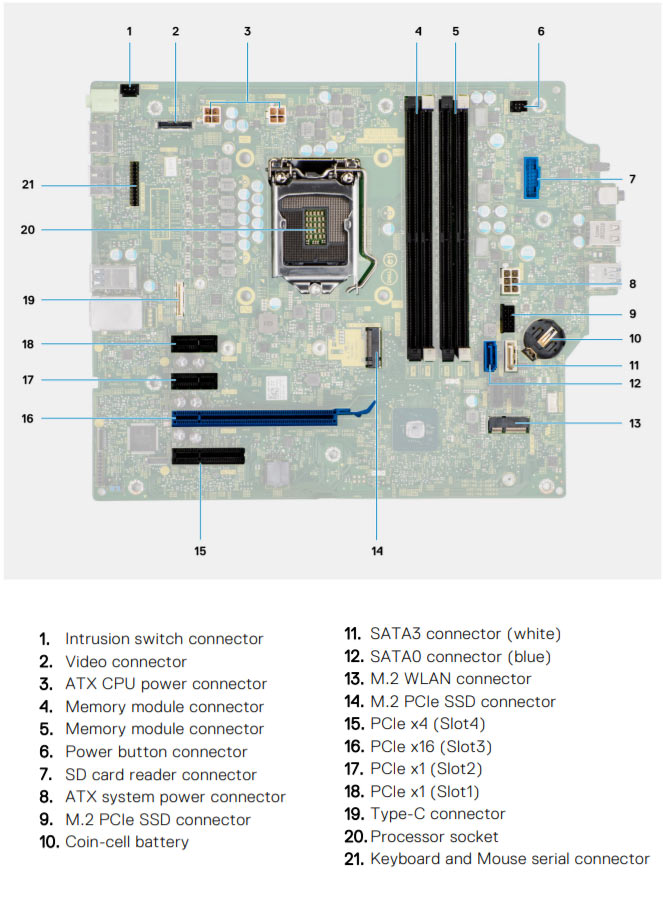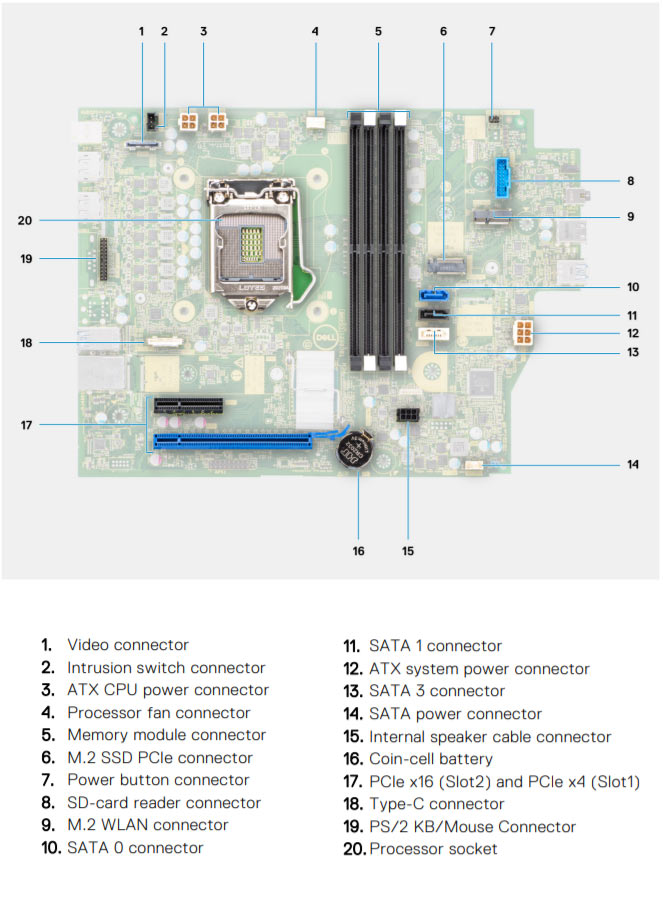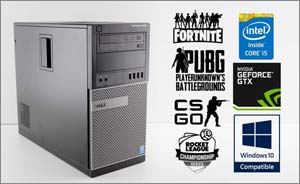Dell OptiPlex 5090 MT vs. Dell OptiPlex 5090 SFF
Comparison and Differences
Differences between Dell OptiPlex 5090 MT and Dell OptiPlex 5090 SFF
Both computers, the Dell OptiPlex 5090 MT and the Dell OptiPlex 5090 SFF, were released during the same year - 2021.
If you are looking for the smaller form factor the Dell OptiPlex 5090 SFF is the right one for you. It is smaller than the Dell OptiPlex 5090 MT and will fit more easily under your desk.
Processor
The two models have the same generation of Intel processors. We think that the 11 generation of Intel Processors have enough power to execute all of the home and office tasks that most people will care to do.
Memory
Both models have have equal amount of ram slots (4 RAM). Usually two RAM slots are more than enough for most cases. However, the count should be taken into account when planning how much and what combination of RAM you are going to need for your system.
None of the desktops has an advantage when it comes to the speed of the RAM being used. Both models support RAM speeds of up to 3200. In addition, you will be able to install the same amount of RAM in both models, and most probably 128 GB of RAM will be enough for most people. However, if you will be needing more RAM, make sure to check other desktop models too.
Ports
Both models have the same amount of USB ports for total count of 10. If this is not enough, using a USB hub is always a viable option. It's great that both of the models have USB 3.1 ports which will allow you to exchange data with your peripherals at up to 10Gb/s. But if you need maximum connectivity, go with the Dell OptiPlex 5090 MT as it has 3 USB3.1 ports (the Dell OptiPlex 5090 SFF has 1).
DisplayPort is crucial for any desktop machine. It is good to see that both models are featuring DisplayPorts. However, the Dell OptiPlex 5090 MT comes with 4 ports, while the Dell OptiPlex 5090 SFF has only 2. If you are planning to use multiple monitors, the Dell OptiPlex 5090 MT is the better choice.
The Dell OptiPlex 5090 MT comes with an HDMI port, while the Dell OptiPlex 5090 SFF does not support the interface. Of course missing HDMI port is something that can be easily fixed with a good adapter (e.g. DisplayPort to HDMI).
SATA slots are located on the motherboard and it is where SSD, HDD and Optical Disk Drives are connected. Each of the two models being compared have 4 SATA slot(s). Keep in mind that having too few SATA slots might limit your options for connecting additional memory drives.
When your goal is to have the fastest SSD transfer speeds, an M.2 interface is crucial. Thus, it is good that both models have M.2 SSD slots. Today M.2 SSDs are not much more expensive than the average SATA drives, so it really does not make sense to invest in SATA drives anymore.
Make sure that the available M.2 slot supports the PCIe (also called NVMe) interface. This is important as there are M.2 slots which support only the inferior SATA III interface. For comparison, the SATA III interface has max speeds of 6Gb/s, while the PCIe 3.0 x4 will support speeds up to 32Gb/s!
Power Supply
Having a Power Supply Unit with high power rating is important, if you are going to use components which require extra power. The Dell OptiPlex 5090 SFF comes with a decent 300 Watt PSU, but the Dell OptiPlex 5090 MT has a more powerful one rated at 360 Watts. Choosing either one depends on your specific requirements and use case. Also don't forget that some models might have more than one PSU option - try to always get the most powerful one, especially if you plan to upgrade to a powerful GPU.

